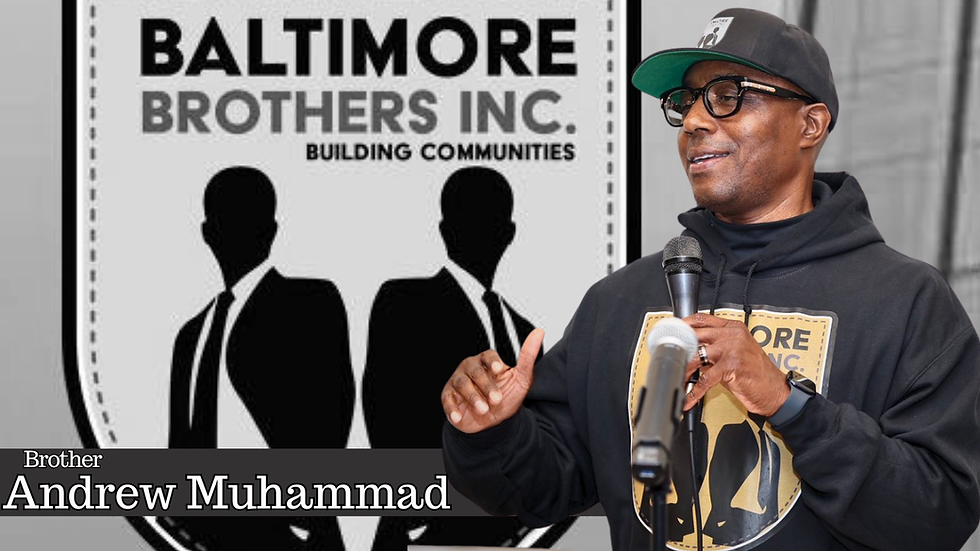Why during the Trump administration's government audit 40 acres and a mule and reparations was never found?
- Brother Levon X

- Feb 11
- 4 min read

For decades, the question of reparations for Black Americans has been ignored or dismissed, despite the undeniable history of slavery, systemic oppression, and racial violence. While the Black community has consistently voted Democratic for decades, the audits reveal that 40 acres and a mule or reparations have not been prioritized nor found. Yet, millions upon millions have been allocated toward the LGBT community, which, while a distinct social group, does not equate to the historical destruction faced by Black families due to slavery and Jim Crow laws. The disparity in funding allocations raises the question of whether political loyalty is being reciprocated with real investment in Black communities
Historically, the United States has provided reparations to various communities it has wronged. For instance, in 1988, the Civil Liberties Act authorized reparations of $20,000 to each surviving Japanese American who was incarcerated during World War II, acknowledging the injustice of their internment.
Similarly, the German government has paid approximately $86.8 billion in restitution and compensation to Holocaust victims and their heirs. Despite these precedents, the Black community in the United States has not received comparable reparations for the enduring impacts of slavery and systemic racism. This disparity highlights a significant inconsistency in addressing historical injustices.
The Financial Discrepancies in Government Spending
The recent audits from the Trump administration highlighted billions of dollars in wasteful government expenditures—yet, not a single legislative effort has been made to direct those funds toward reparations or meaningful support for Black communities. Instead, discussions arise about spending money on foreign interests, such as the idea of purchasing land in the Gaza Strip, a territory that is not for sale nor belongs to the United States. This raises a crucial question: If money can be considered for land purchases in foreign territories, why is it never available for repairing the damages done to Black communities?
Additionally, we must examine how the United States chooses to respond to global injustices. According to The New York Times, President Trump ordered that all foreign assistance to South Africa be halted and stated that his administration would prioritize the resettling of white Afrikaner refugees into the United States. When apartheid ravaged South Africa and indigenous people were being slaughtered, the U.S. did not intervene militarily or impose sanctions. Yet today, when South Africans reclaim land that was stolen during colonial rule, Western nations are cutting financial ties in response. The message is clear—when the oppressed demand justice, there is economic retaliation, but when the oppressor commits atrocities, there is silence.
A Shift in Focus: Self-Sufficiency and Global Unity
If history teaches us anything, it is that waiting for a system designed to exclude us to suddenly work in our favor is futile. The question we should be asking is not whether reparations will come but rather, should we even keep expecting them? Instead of placing faith in politicians—many of whom, despite looking like us, operate within a system that was never designed for our benefit—we must shift our energy toward self-sufficiency.
Africa, despite the often negative portrayal in Western media, is thriving. Many cities are developing rapidly, offering opportunities that could benefit Black Americans looking to invest, relocate, or form international partnerships. Some African nations have even begun initiatives to welcome Black Americans back to the continent, recognizing the shared history and the need for economic and cultural unity. If the Western world refuses to acknowledge the value of Black lives, why not build wealth and alliances elsewhere?
Actionable Steps: Building Economic Power
The foundation of any thriving community is economic strength, and that starts with ownership and strategic resource allocation.
Land Ownership: Families and individuals with the means should consider buying land and pooling resources to create self-sustaining communities.
Black Business Support: Circulating money within Black-owned businesses strengthens economic independence and reduces reliance on external entities.
Strategic Meetings: Faith-based organizations and community groups must move beyond spiritual encouragement and engage in structured, documented plans that outline tangible progress.
Youth Education & Protection: The erasure of Black history in school curriculums is a deliberate attempt to weaken future generations. We must take responsibility for teaching our children the truth and equipping them with the tools to build rather than inherit struggle.
Breaking the Cycle: No More Repeating Unproductive Patterns
If we continue to rely on a system that has shown no intention of prioritizing our interests, we will remain in a cycle of disappointment and stagnation. Doing the same thing repeatedly while expecting different results is not a strategy; it is a failure to adapt.
Instead of waiting for change to be handed to us, we must take action in small, intentional ways that grow over time. This requires discipline, accountability, and unity. We have the blueprint—our ancestors laid the foundation. Now, it is up to us to build upon it.
The truth is undeniable: no external entity will prioritize the Black community’s success unless we make it our own mission. So let’s stop waiting and start building. Let’s apply the knowledge, implement the strategies, and create the future we deserve.
The power is in our hands. Now, what will we do with it?





Comments